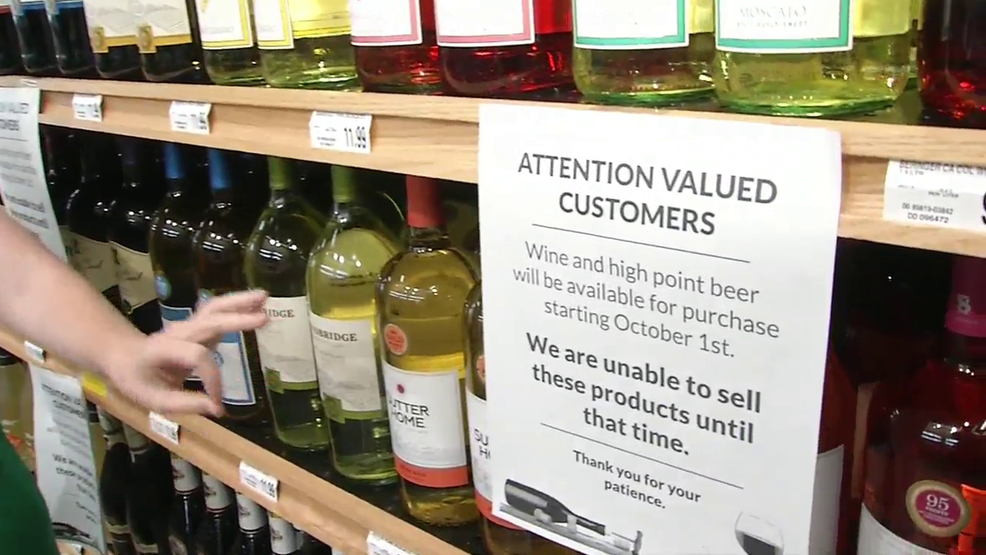Recent changes to state liquor laws in Oklahoma may negatively impact both recovering alcoholics and college students, according to counselors and ministry leaders in the Edmond, OK community.
Effective Oct. 1, retail outlets may sell higher point beer and wine, up to 8.99 and 15 percent alcohol by volume, respectively. Additionally, grocery and liquor stores are now allowed to sell refrigerated alcohol for “faster and more convenient consumption.”
At the Memorial Road Church of Christ, Celebrate Recovery offers a wide selection of Biblically-focused programs for people struggling with alcohol, chemical substance and sexual addictions, as well as support groups for other issues such as mental health, divorce and parenting.
Ministry director Nathan Ison said the new, convenient access to higher-content alcohol may be a dangerous stumbling block for individuals recovering from alcohol addiction.
“I think the fact its available in grocery stores just kind of adds one more opportunity for an alcoholic to be triggered,” Ison said. “I think it’s probably just one more obstacle for them to have to mentally prepare for and one more obstacle for them to overcome in their recovery journey. I don’t know if this makes it any harder, but availability and proximity are just more challenges for those people to face.”
Studies have shown college students are likely to abuse alcohol and other substances, and may be impacted by the new liquor laws. According to the National Institute on Alcohol Abuse and Alcoholism, 37.9 percent of college students ages 18 to 22 reported binge drinking in the past month, and 12.5 percent reported excessive alcohol use in the same time period.
Sheldon Adkins, a counselor in Oklahoma Christian University’s on-campus counseling center, expressed concerns for college students who may be more susceptible to the effects of binge drinking and alcohol dependencies.
“The first thing I was concerned about is probably this age group, because the tendency is toward binge drinking in high school to college-aged kids,” Adkins said. “It certainly makes it easier, and you’re binge drinking at higher alcohol volume levels. More frequently, we’ll see students who would fit more with binge drinking, but we definitely deal with students who are abusing substances and—I would say—have a dependency”
Oklahoma Christian has a strict no-tolerance policy against possession, use and distribution of alcohol and illegal substances. However, students are not immune to the impacts easier access to high-content alcohol may cause. Adkins said Oklahoma Christian believes education is one of the best preventative measures to help its students avoid the consequences of substance abuse, and he encourages students to take advantage of the economical, on-campus support the counseling center provides.
“We know that, just like any other campus in the U.S., there are going to be students that experiment,” Adkins said. “But we also want to make sure students understand there’s a risk for anyone who uses substances. It can be problematic, so we take any opportunity we have to speak to students on campus to talk about what they can do to be aware of it personally or for other people they care about. I always say, ‘Come to the counseling center, because that’s what we do.’”
According to Ison, a commonly known inhibition for people suffering from substance abuse is admitting they have a problem and accepting help from others. Ison said alcoholism and other substance dependencies are often caused by deeper-rooted problems in the person’s life.
“With any addiction, it’s just getting out of your own head and being willing to ask for help and receive support from other people,” Ison said. “A lot of times, our struggles, our addictions aren’t just about the addiction—that’s just a symptom, the way we cope with other things that are going on in our lives. The hardest part for a lot of people is just willingness to be vulnerable and to seek help and receive help consistently instead of going back in a state of trying to manage things by their own power.”
Ison said students and professionals in the Edmond community are urged to seek professional help if they struggle with alcoholism or any form of substance abuse.
“Don’t be ashamed to reach out for professional help or seek the opinion of a counselor or therapist,” Ison said. “A lot of times, there’s a stigma associated with just visiting someone who can provide professional help, but I would encourage that person to take steps to find a safe person and an expert to talk through what struggles they might be having.”















Be First to Comment